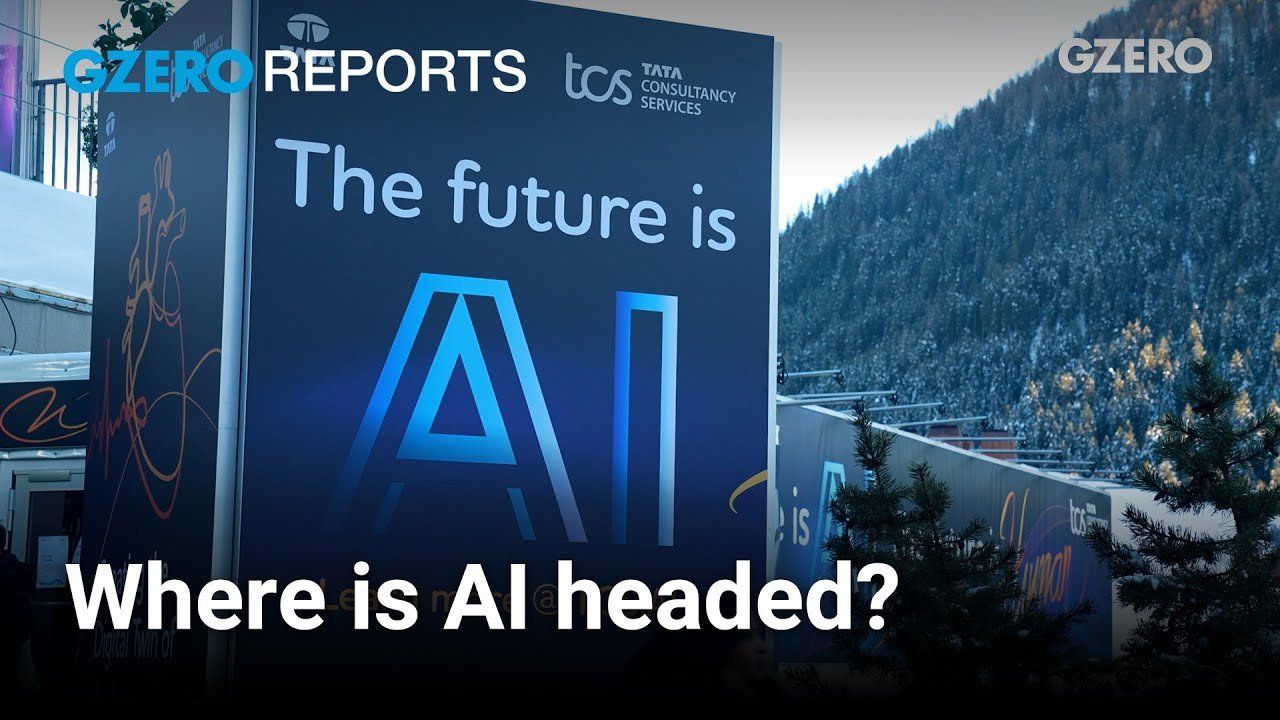
The official theme of the 2024 World Economic Forum held recently in Davos, Switzerland, was “Rebuilding Trust” in an increasingly fragmented world. But unofficially, the hottest topic on the icy slopes was artificial intelligence.
Hundreds of private sector companies convened to pitch new products and business solutions powered by AI, and nearly two dozen panel discussions featured “AI” in their titles. There was even an “AI House” on the main promenade, just blocks from the Congress Center, where world leaders and CEOs gathered.
So, there were many conversations about the rapidly evolving technology. But were they the right ones?
GZERO’s Tony Maciulis spoke to Marietje Schaake, a former member of the EU parliament who now leads an AI policy program at Stanford. Their conversation focused on the human side of AI and what it could mean for jobs and the workforce.
A recent study from the International Monetary Fund (IMF) revealed that as many as 40% of jobs worldwide could be adversely impacted by AI. Schaake said that kind of upheaval could lead to political unrest and a further rise in populism and encouraged corporations and public sector leaders alike to find solutions now before the equality gap further widens.